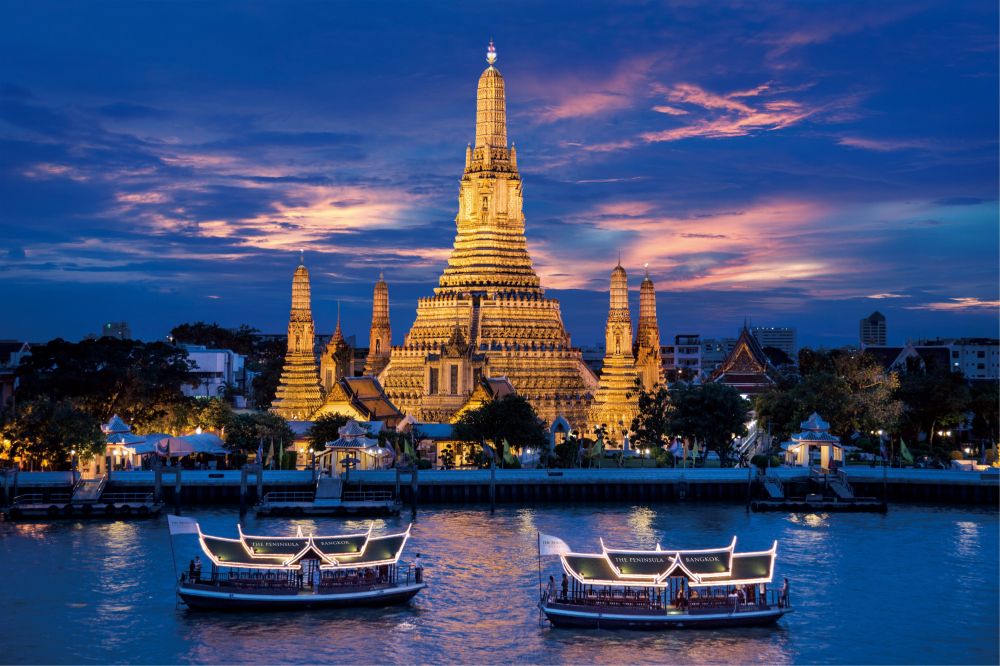

Bangkok, the vibrant capital city of Thailand, has a rich history intertwined with tourism that has evolved significantly over the years. Initially, the city was founded as the capital of the Chakri Dynasty in 1782 by King Rama I. For many years, Bangkok was largely insular and did not receive significant numbers of international visitors.
Early Tourism
It wasn't until the early 20th century, particularly during the reign of King Rama VI and King Rama VII, that tourism started to take shape with the introduction of modern developments and Western-style hotels. The construction of Hua Lamphong Railway Station in 1916 and the first international airport in Don Mueang in the 1920s facilitated access to the city. However, international travel was still a luxury few could afford, and visitors were mostly businessmen, diplomats, and ex-patriots.
Post-War Tourism Boom
The significant boom in tourism occurred post-World War II, in the 1960s, with improved transportation infrastructure and a growing global interest in travel. The Vietnam War also saw an influx of American soldiers on Rest and Recreation (R&R) leave in Bangkok, which brought international attention to Thai culture and hospitality.
The Emergence of Thailand's Tourism Industry
The 1980s and 1990s marked a pivot point as Thailand actively promoted tourism under the "Visit Thailand Year" campaigns. Investment in tourism infrastructure surged, luxury hotels and resorts were built, and Bangkok became a major hub for backpackers exploring Southeast Asia. Bangkok's allure was further magnified by its portrayal in films and the media, depicting it as an exotic and exciting destination.
The Modern Era of Bangkok Tourism
Today, Bangkok has solidified itself as one of the world's top tourist destinations. Known for its ornate temples, vibrant street life, flourishing culinary scene, and thriving nightlife, the city draws millions of tourists annually. Attractions like the Grand Palace, Wat Arun, and Chatuchak Market are iconic, while the city's transport system has expanded with new Skytrain lines and river ferries, making it easier for tourists to navigate.
Latest Tourism Trends
The latest tourism trends in Bangkok showcase a shift towards experiential travel, with tourists seeking authentic, culture-rich experiences beyond traditional sightseeing. There's growth in culinary tourism, with street food tours and cooking classes, wellness tourism including yoga retreats and Thai massage, and sustainable tourism initiatives aimed at preserving the city's heritage and environment. The rise of digital nomadism and the convenience of serviced apartments and co-working spaces in Bangkok have also contributed to the city's dynamic tourism landscape.
Despite challenges like political instability, natural disasters, and the global pandemic, Bangkok's tourism industry has shown resilience. The city continues to reinvent itself, maintaining its allure and promising an ever-evolving experience for travelers from around the world.